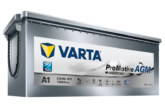
Choosing the right oils and greases plays a key role in powering efficient fleets at the lowest cost per kilometre. SHELL explains why.
In a price sensitive market, lubricants are often one of the first areas where costs are cut. In fact, a survey of fleet managers revealed that only 52% believe lubricant product performance to be an important purchase consideration*.
But high performance lubricants and greases play a vital role in reducing maintenance costs, improving fuel economy and increasing vehicle availability – and can help the environment by cutting emissions.
Buying cheaper oils and greases will cut costs in the short term but the detrimental effect on vehicle components is more costly in the long term: one in three fleet managers admit that errors in lubrication had cost their business over $100,000 in the last few years*.
Evaluating and reducing total cost of ownership (TCO) is a key tool in fleet management, enabling fleet managers to extract the best possible value from their vehicles over their lifetime. Yet 56% of fleet managers do not expect high quality lubricants to help cut maintenance spend, which typically amounts to around 10% of total fleet costs*.
For fleet businesses, TCO includes monitoring ‘cost per kilometre’ of the vehicle fleet, which is influenced by vehicle availability, maintenance cost and fuel expenditure. This figure – £/km – is used to evaluate the impact of lubricants not only on maintenance budget and processes, but also any costs related to lost productivity through vehicle downtime.
Any period of unplanned maintenance for a vehicle will affect a company’s efficiency, reputation and, ultimately, the bottom line. The longer a vehicle is on the road and the more reliable it is, then the greater the profit. And this can only be achieved by using the right lubricants and greases to protect components against wear, deposits and corrosion while prolonging oil life, reduce maintenance costs and maximise oil drain intervals.
Fuel costs now account for as much as 39% of total fleet operating expenditure, so a lubricant that delivers even a small increase in efficiency can greatly impact TCO. The latest low-viscosity heavy duty engine oils enhance fuel economy without compromising on wear protection or oil life, delivering maximum efficiency and welcome savings on fuel costs.
Even seemingly small changes to lubricant procurement decisions can have significant impact on TCO. After following expert advice from Certas Energy and upgrading to a high performance lubricant from Shell’s Rimula product family, a national road haulage business made savings of more than £45,000 on its yearly maintenance budget.
Take advice
Every component of a truck or bus made by different original equipment manufacturers (OEMs) has its specific lubrication requirements. OEMs define the minimum requirements for lubricants or greases, but not all products that meet these standards deliver the same level of performance.
Premium lubricants manufacturers work closely with key OEMs to develop products that are technologically advanced and can meet and exceed equipment needs both now and in the future.
This close collaboration provides oils that are designed to keep transmission components protected so they keep working effectively mile after mile. Using premium innovative products, can provide confidence that fleets are operating at optimal performance.
There are also a number of other factors unique to fleets that can affect lubrication performance. These include how the vehicle is fuelled, operational parameters and surrounding environment – all of these considerations must be taken into account when choosing the correct lubricant or grease for your fleet. These fleet-specific challenges make it vital to consult a lubricants expert who can advise on the best solutions.
Consulting a lubricants technical expert will help you understand your fleet’s individual needs. Their expertise and product knowledge ensure that lubricants and greases are optimised for the latest vehicles to improve reliability and productivity.
Management
When upgrading lubricants, it’s also vital that transport operators have the right management processes in place. Even the best product cannot perform to its full potential if it is not applied and managed correctly, so having effective lubricant management systems can help deliver value from improved productivity and reductions in lubricant consumption, maintenance and operating costs.
Extra benefits
The latest lubricants also help to keep emissions low by protecting the performance of exhaust emission systems. Using a lower quality lubricant can degrade equipment such as catalysts and diesel particulate filters, leading to compromised systems which can contribute to greater emissions. Furthermore, blocked DPF have also been shown to increase fuel consumption.
High performance lubricants, such as Shell Rimula Ultra E Plus 5w-30, ensure that a vehicle complies with legislation by prolonging the life of exhaust emission systems and contribute to greater fuel efficiency and reduced costs per kilometre.
Ultimately, optimising lubrication will have a significant impact on component life, maintenance costs, and unplanned downtime, so it can contribute to cost savings far higher than the price of the lubricant itself.
By keeping one step ahead, fleet operators can be ‘total cost of ownership’ aware, helping to unlock the financial opportunities that effective lubrication can provide.
[*] This survey, commissioned by Shell Lubricants and conducted by research firm Edelman Intelligence, is based on 395 interviews with Fleet sector staff who purchase, influence the purchase or use lubricants/greases as part of their job across 8 countries (Brazil, Canada, China, Germany, India, Russia, UK, US) from November to December 2015.








